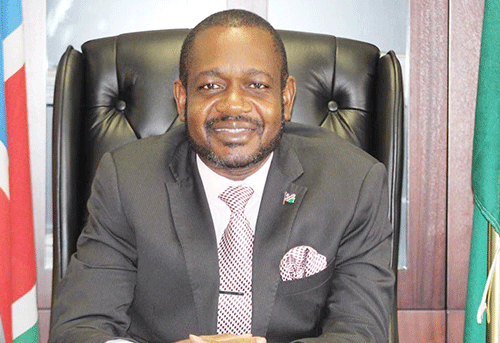Namibia is the first Southern African country to conduct a national assessment of its internet universality indicators. This action provides the country with an opportunity to voluntarily assess itself in terms of how internet policies and digital development are practically taking shape.
Executive director (ED) in the information and communication technology ministry (MICT) Audrin Mathe said the assessment will provide Namibia with evidence of where precisely the country is in terms of policy and development
of the internet, particularly considering the human rights aspects, openness, and accessibility.
“It further evaluates the roles and governance of the multi-stakeholder, the intersection of gender, people with disabilities, youth, sustainable development,
and other intersectional issues that ought to be paid attention to in the policies and practice of technology,” said Mathe
yesterday during a public consultation in the capital.
The consultative meeting was held by MICT, in collaboration with the Internet Society of Namibia and the United Nations Educational, Scientific and Cultural Organisation (Unesco).
The assessment aims to develop policy recommendations and practical
initiatives that will enable Namibia to improve its internet ecosystem, particularly as frontier information, communication
and technologies (ICT) evolve.
The ED added the results of this assessment will assist government
and interested stakeholders of national internet environments with a direction toward enabling evidence-based policy formulation.
“I am glad to note that the Namibian research team has undertaken all 303 indicators for the assessment and
this event marks the last consultations aiming at finding conclusive evidence, particularly on indicators seeking public perceptions as well as other evidence,” Mathe said.
Last month, ICT minister Peya Mushelenga noted with concern that while the online industry is growing and technological innovations are advancing, the low investment in ICT and the lack of a sufficient number of qualified
ICT professionals pose the greatest
obstacles to expanding the ICT industry
in Namibia.
He added that ICT includes
fundamental pillars for inclusive, sustainable social and economic development. In a quest to become an advanced digitally propelled nation by the year 2030, Namibia has developed an ambitious ICT blue-print that enables it to fully utilise technology and innovation to turn around its
economy.
Mushelenga noted that during the last
two decades, Namibia has developed viable ICT infrastructure to reinforce robust economic development sustainably.
“Namibia has built thousands
of base stations, including hundreds of 4G base stations. Huawei Technologies,
in partnership with the government and other players, has contributed immensely to this modern ICT revolution,”
he added.


